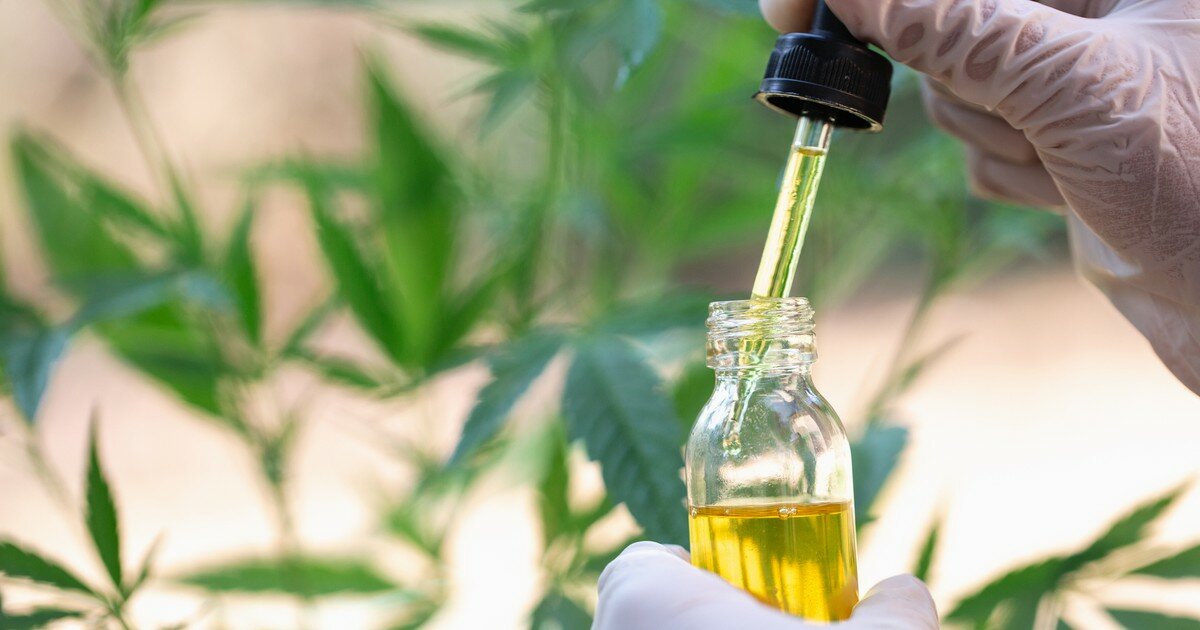
How do you take CBD oil?
CBD oil is most readily available as a tincture. This can be taken by applying a few drops under your tongue, holding in your mouth for a few moments so it can be absorbed, before swallowing. It can also be added to water or smoothies.
When it comes to dosage, guidelines state you should start with the smallest possible dose – its effects should be immediate, so you will be able to tell if the lower dosage is working for you. However, it’s always best to consult your doctor before trialing any new medication or remedy.
What are the benefits of CBD oil?
While the majority of research done into the effects of CBD oil has been based on animal studies and anecdotal evidence, some pretty clear benefits have been highlighted:
1. CBD oil can alleviate pain
Many studies – both animal and human – have examined the link between CBD and pain relief, which are thought to be down to the oil’s ability to reduce inflammation and interact with neurotransmitters.
CBD has been described as a multi-target molecule. It is highly antioxidant, so has anti-inflammatory effects on joints, to improve pain and stiffness. CBD also has an analgesic effect, to reduce pain perception in the brain.
As well as pain relief, CBD oil has been shown to offer benefits to those receiving treatment for cancer.
High CBD-content medicinal cannabis products can help reduce nausea, poor appetite, pain and sleep disturbance in cancer patients, as shown in multiple studies.
2. CBD oil can ease anxiety
Several studies have found that the use of CBD oil is helpful in reducing anxiety, meaning it could be a beneficial natural remedy for sufferers.
Cannabidiol interacts with the body’s own endocannabinoid system, enhancing the effects of other brain chemicals to promote relaxation and reduce anxiety, stress, restlessness, and fatigue.
Back in 2011, a study published in the journal Neuropsychopharmacology found that when people with a generalized social anxiety disorder (SAD) were given 600mg of CBD oil prior to a public speaking test, as opposed to a placebo, they experienced significantly less anxiety, difficulty, and discomfort during their speech.
3. CBD oil is a natural antidepressant
Many studies have examined CBD oil’s antidepressant-like effects. It’s also been shown to safely improve the symptoms of post-traumatic stress disorder (PTSD) in children.
CBD has proven anti-anxiety effects and may be helpful in depression, based on anecdotal reports. The antidepressant effects of CBD have been shown in animal models, but we now need large, depression-specific studies in humans as the next step.
4. CBD oil could be beneficial in epilepsy treatment
Clinical trials have found CBD to be highly effective in the treatment of certain types of epilepsy. There is also growing evidence to suggest it could help more types, although further research is needed to fully understand safe and optimal dosing.
Does CBD oil have any health risks?
The majority of CBD oil users don’t experience any negative effects.
In doses used as a food supplement, CBD poses few risks, and side effects are unusual but can include a dry mouth or drowsiness. Higher doses used medically are well tolerated, and there are no serious safety concerns. A World Health Organization report issued in 2017 concluded that cannabidiol does not appear to have abuse potential or cause harm.
Precision Pain Care and Rehabilitation has two convenient locations in the Richmond Hill – Queens and New Hyde Park – Long Island. Call the Richmond Hill office at (718) 215-1888, or (516) 419-4480 for Long Island office, to arrange an appointment with our Interventional Pain Management Specialist, Dr. Jeffrey Chacko.













